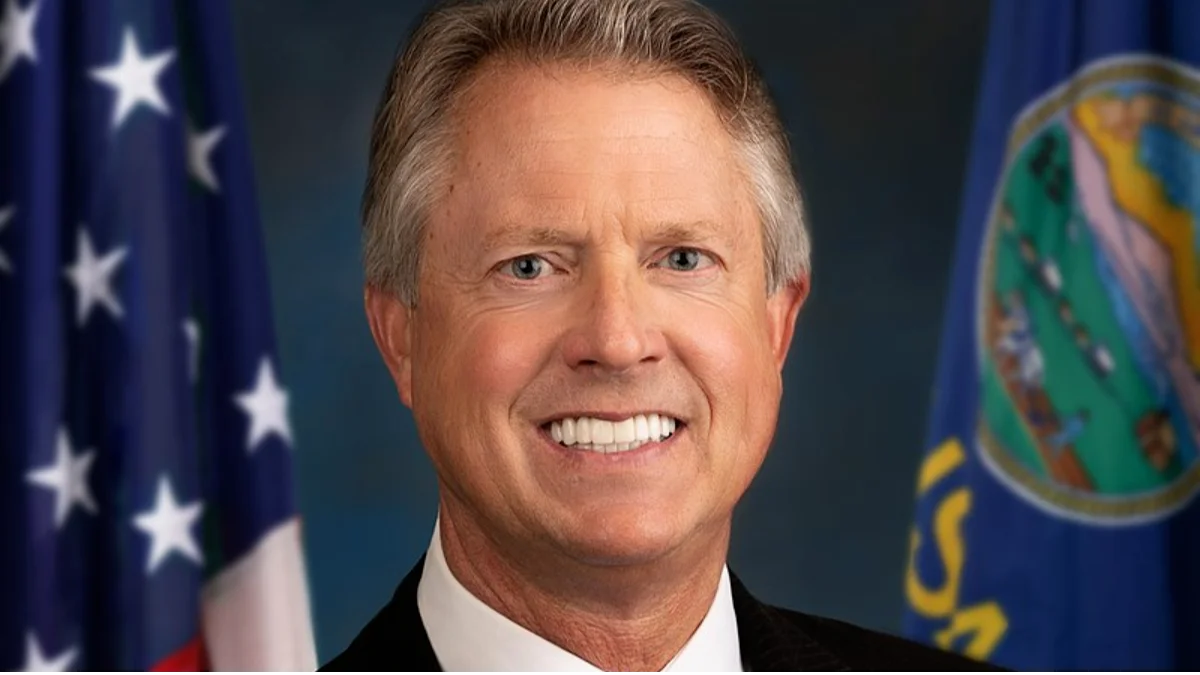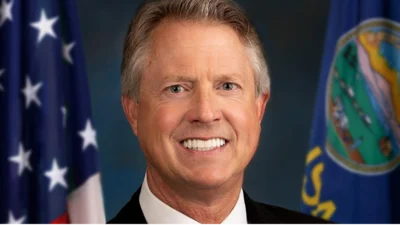Senator Roger Marshall, US Senator for Kansas | Official U.S. House headshot
Senator Roger Marshall, US Senator for Kansas | Official U.S. House headshot
U.S. Senator Roger Marshall (R-Kansas) participated in a press conference on Tuesday to support the introduction of the ROTOR Act, a new aviation safety bill led by Senator Ted Cruz (R-Texas). The event marked six months since the collision between an Army Black Hawk helicopter and American Airlines flight 5342, which led to renewed calls for stronger oversight and coordination in U.S. airspace.
The legislation aims to address safety gaps identified after the January 29, 2025 crash that claimed 67 lives, including seven Kansans. Senator Marshall was joined at the event by Senator Cruz, U.S. Secretary of Transportation Sean Duffy, NTSB Chairwoman Jennifer Homendy, and Senator Jerry Moran (R-Kansas).
During his remarks, Marshall expressed condolences for those lost in the crash: “Thank you, Senator Cruz, for your leadership and for inviting us to participate, and to all my fellow speakers up here, thank you. Good morning, everybody. On January 29, 2025, American Airlines flight 5343, from Wichita to DCA, tragically crashed, claiming 67 lives, including seven Kansans: Bob and Lori Schrock, Pete ‘PJ’ Diaz, Lindsey Fields, Grace Maxwell, Kiah Duggins, and Dustin Miller.
“Their loss weighs heavily, and we owe it to them to ensure their deaths were not in vain. That night I shared many of the same thoughts that so many of the family members had. Why was the helicopter in that airspace? Was it flying too high? Why did its transponder fail to warn the jet or air traffic control?
“While we’re still awaiting some of those answers Congress needs to act swiftly. Our proposal legislation led by Senator Cruz mandates ADSB technology on aircraft in key airspaces and for damn sure they need to turn them on. They need to turn them on when they’re in those airspaces. The military if they’re going to be in the airspace they need to turn on their transponders.
“This legislation mandates the technology aircraft and key airspace studies barring rotorcraft from DCA during final approaches and orders an army audit of FAA coordination pilot training and ADSB use. These demands were asked for and driven by the victims’ families. I hope they know that their voices were listened to and that they’re being heard. And I appreciate the families staying at this. And no law can bring back the 67 people who we lost but we can strengthen aviation safety to prevent such a tragedy again.
“Again I’m trying to think what was missed today but I just want to reflect back to a conversation I had with the mayor of Wichita the day after. I said ‘What can I do? What can I tell Wichita?’ and she said ‘The number one thing is you could tell them we won’t have helicopters in that airspace anymore.’ And I reached out to Secretary Duffy and Secretary of Defense Hegseth and they stopped and grounded them all. They stopped them from being in that air that day and I hope we continue to have that commitment until Congress does does her job.
“Echoing what Senator Moran said The One Big Beautiful Bill which is now law had $7 billion $12 billion for modernizing air traffic control which was long overdue. The other response I see the Trump administration doing is accelerating air traffic controllers going through the system. The Secretary could speak more to that than I can but from what I understand over 3 000 people are in some point of training to become air traffic controllers.
“We’ve accelerated the process It’s still a very rigorous process to get in the system added bonuses doing everything we can to get people in seats that we need to prevent a tragedy like this again Thank you everybody.”
The ROTOR Act would require Automatic Dependent Surveillance–Broadcast (ADSB) technology on aircraft operating within designated areas as well as studies into restricting certain rotorcraft operations near Washington National Airport during critical phases of flight. The bill also calls for audits into Federal Aviation Administration coordination procedures pilot training requirements related specifically to transponder usage as well as increased transparency regarding military flights sharing civilian-controlled skies.
In addition recent federal funding has been allocated toward modernizing national air traffic control infrastructure while efforts are underway across agencies—including expedited recruitment—to increase staffing levels among certified controllers nationwide.



 Alerts Sign-up
Alerts Sign-up